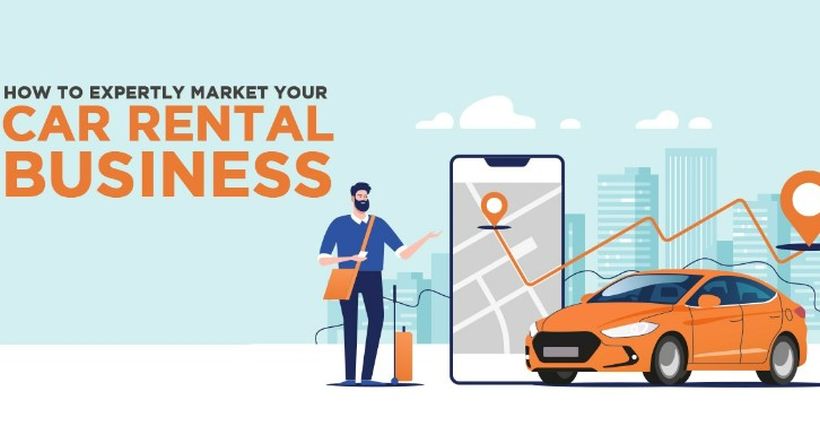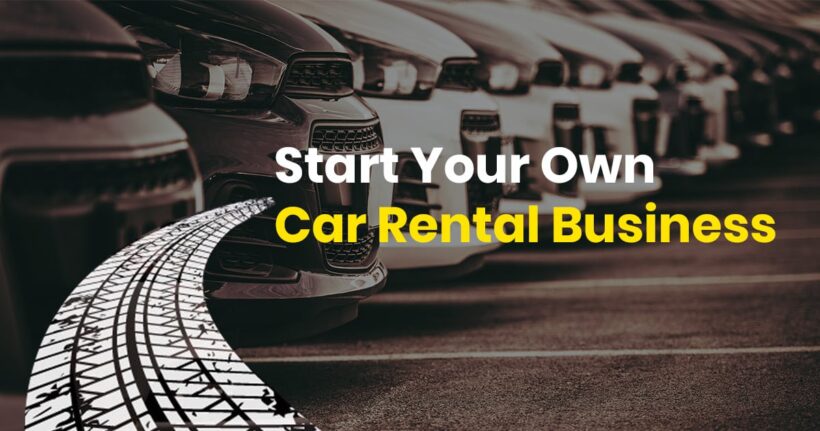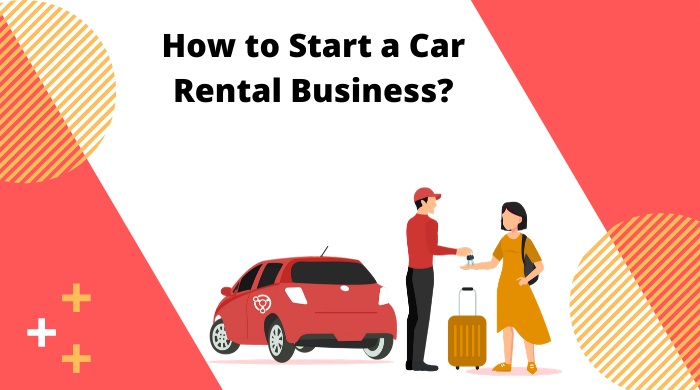After a brief lull during the pandemic lockdowns, the car rental business has picked up momentum at an impressive rate. In fact, the global market for car rentals is set to hit a whopping USD 96.5bn by 2027. The growth in travel and tourism, the increasing popularity of electric vehicle rentals, and the search for cost-effective commuting options to save on vehicle ownership costs have all been blessings for car rental businesses.
As much as the industry is massive in scale, it’s also diverse and presents many opportunities for car rental startups. Today, there are companies serving holiday goers, business travelers, and even those in search of vehicles to rent long-term. Some businesses cater to commercial requirements, while others focus on the individual traveler.
Whichever segment you want to serve, you’ll need to follow specific steps when starting a car rental business. Here’s our 7-step plan to guide you through the process.
1. Research the Market

The planning process for any business should start with market research. It’s how you understand the market trends, gaps, and opportunities.
Researching your competition will help you determine their strengths and weaknesses, learn from their mistakes and successes, and formulate the best strategies to tackle them successfully.
It’s also essential to research your potential customer segments and identify where the opportunities lie. For example, do you want to target budget travelers or high-end customers looking for luxury vehicles? Should you focus on short-term renters or those interested in renting longer? Each customer group has distinct profiles, behaviors, spending patterns, and expectations. Study them carefully to get an in-depth understanding.
Once you narrow down your audience and define their profile, you can start building potential lead lists. Identify leads using relevant databases and social media platforms and create contact lists with the help of Leadar.
2. Prepare a Business Plan

A business plan is an important document to get funding for your car rental startup, whether you intend to approach a bank or a private investor.
But it has other benefits as well. For example, a business plan will force you to critically evaluate your business strategy and tackle the difficult questions:
- What are your business’s strengths and weaknesses?
- What is your sales forecast, and how do you intend to achieve it?
- From which competitors will your customers come?
- Why would customers choose your car rental business over your competitors’?
- When will you break even?
A well-crafted business plan will give you a broader and more realistic perspective of your business. It will make your business strategy crystal clear and help you rethink your financial forecasts and budgets.
3. Formalize Your Business
This is not simply about naming your car rental business, designing a logo, or creating a letterhead, although those are certainly critical areas to address.
Here are the essential activities to formalize your business:
- Determine the legal structure
- Register your business
- Register for business taxes
- Purchase a business insurance policy
- Set up a business bank account
- Apply for relevant licenses
4. Get Funding
Setting up a car rental business requires a sizeable investment. Your business plan has already helped determine how much funding you would need to commence operations and how you will utilize it.
Now it’s time to seek that much-needed funding, whether you intend to acquire it through family and friends, with a bank loan, or an external investor. A detailed business plan will allow lenders and investors to understand your business and its growth strategies. But keep in mind that external funding has considerable responsibilities attached. For instance, you need to repay your borrowings with interest and provide a return to your investors. So, assess your funding requirements prudently and be sensible in how and where you use what you receive.
5. Hire Staff and Set up the Office
Consider where you would need support at the initial stage of your business. You may prefer a lean organization with minimal sales, marketing, administration, and accounting staff. You can even opt for part-time or freelance professionals over full-time employees until your business takes off.
It’s also time to set up an office. Space requirements for your fleet and the cost of leasing should be your major considerations. Being closer to your customer could be important, too. For example, if you’re focusing on vacation renters, setting up your office closer to an airport would be a clear advantage.
6. Acquire the Fleet
Will your car rental company serve the budget category or the luxury segment? Do you plan to purchase your fleet or lease it? How many vehicles would you need at the start of your business? These are all critical questions to answer before you acquire the fleet.
Review the terms and conditions set by the seller or lessor, carry out a comprehensive inspection, and assess maintenance costs before you sign any agreements.
7. Set Up Your Marketing Programs

A strong online presence with a thoughtfully designed website and social media pages is essential to generate initial awareness. It could even help with your lead-generation efforts.
Email campaigns, promotions, and cross-promotion partnerships can all drive sales at the launch of your car rental business. Training your sales and customer service staff is also critical at this stage.
To Summarize

Setting up a car rental business may seem complex at first. But you can navigate it with better clarity using the 7-step plan discussed in this article.
Researching the market, preparing a detailed business plan, and formalizing your business with the necessary registrations and licenses are critical to acquiring funds and formulating an effective strategy. Once you have the funding in place, you can set up your offices, hire staff as required, and launch your marketing programs to create awareness and generate leads.
Car rental businesses may often demand a sizeable initial investment. But they are also highly versatile. If you’re cash-strapped, for instance, you can start with one or two vehicles and expand over time. It’ll give you plenty of opportunities to test the water, experiment with different options, and grow your business at a pace that meets your personal goals.

